N.B. woman recalls how close she came to suicide after ER sent her home without help
Expert says there are no 'hard and fast rules' for psychiatric admission to hospital
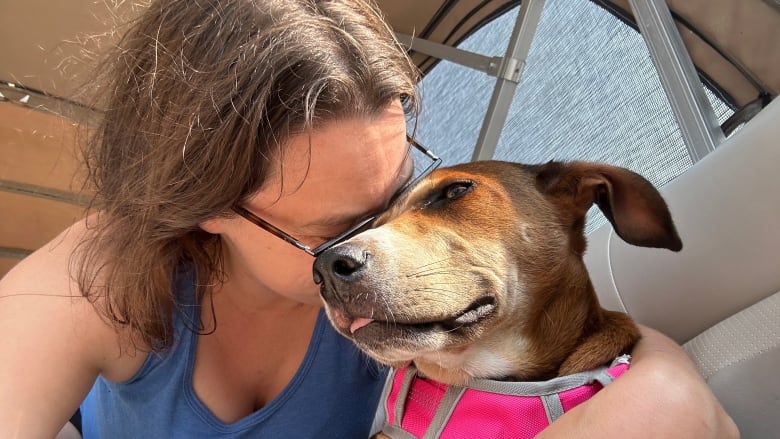
WARNING: This story contains details about suicide.
Ashley Chase feels let down by a system that promised to do better after the 2021 suicide of a teenager who'd waited nine hours for mental health help at a Fredericton emergency room.
The same thing happened to Chase in May. Different hospital, same story.
And were it not for a well-timed phone call from a friend, Chase said, it would have had the same outcome.
On May 15, she took herself to the Upper River Valley Hospital in Waterville and told them she wanted to die by suicide.
A kind triage nurse told her she was glad Chase had decided to go to the ER.
"Any notion of an empathetic and caring experience ended there," Chase said.

The ER doctor didn't seem to know what to do with her, she said.
"He told me that I was welcome to sit in the room they had given me until I felt safe enough to drive myself home. And then he asked me what else I had thought they would be able to do for me at the ER."
Chase said she still has ahard time forgiving the doctor.
"He knew ...I didn't have family with me,I didn't have a friend with me.He let me walk out of there with him as the only person who knewand he did nothing."
Yet she was more disappointed than surprised, she said, having heard about Lexi Daken's experience.
After waiting for hours for help at theDr. EverettChalmers Hospital ER, the Fredericton teengot only a referral for followup care and went home witha sense she'd been a burden. She tookher own life.

That night at the ER in Waterville, Chase felt hopeless and went home. She said she Googled "how to tie a hangman's knot."
"My crisis continued and worsened," she said.
When she finished writing letters to her loved ones, there was only one thing left to do she had toask a neighbour to check on her dogs in the morning.
'In a much better place'
And then came that fortuitous call from a friend.
"She called me and she derailed my plans with her care," said Chase, who continues to see a therapist and has the support of family and friends, "including people who can advocate with me and for me."
But now that Chase is "in a much better place," she's angry. And she wants the system to change.
She said her ER experience put her in a worse place and more resigned than before that suicide was the answer.
"I only went there because I was told it was what I was supposed to do that I would get help there. I am angry that I was told to go somewhere that was not equipped, and clearly has no clear protocol on what to do with a suicidal patient in crisis."
The Upper River Valley Hospital was asked to comment on Chase's story, but an official referred all inquiries to the Horizon Health Network.
'He was savable'
Miramichi mother Carol Adams knows how tragic the outcome can be when someone reaches out to ask for help and is turned away.
Her 28-year-old son died by suicide last summer28 hours after he was released fromthe local emergency department.
Adams said her son Jonathan started talking about suicide when he was 15. She said hewas prescribed medication for anxiety and depression, "which made a difference temporarily, but when that doctor left town, no other doctor would prescribe him."
So he turned to street drugs.
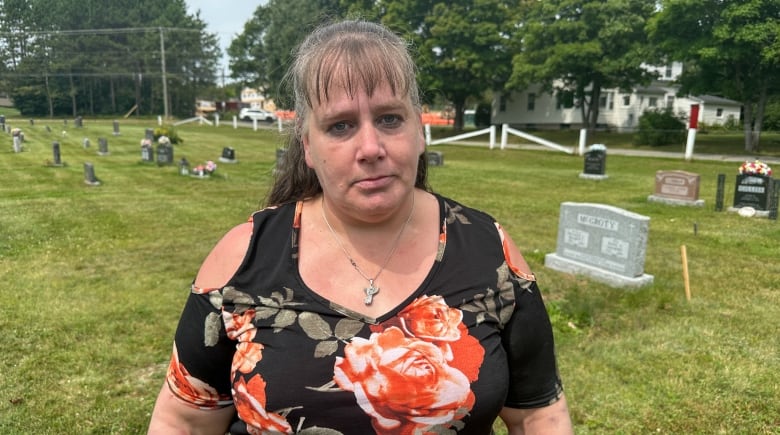
Jonathan would always "fight to get clean," Adams said. "He was in rehab three different times and was clean for about 10 months before he died until he "took a puff of crack.
"And nobody was more disappointed than him."
He'd attempted suicide before, and when hebecame suicidal again, Adams took him to Miramichi Hospital..
"Going into the hospital, he told me, 'Mom, don't let them send me home.'I asked him why. He said, 'It's different this time. It's not gonna be good.'"
Adams had to leave him at the ERso she could look after another child at home. Shewas surprised when the nurse called hours later to say Jonathan was being released becausethe doctor didn't believe her son needed mental health care.
She was told the doctor decided "he needed detox," Adams said. "He didn't need psychiatric help. Well, zero effort was made to put him in detox, let him clean out and then reassess him for psychiatric needs He was just solely dismissed and wrote off as an addict."
The nurse was apologetic but did what she could, giving Jonathan numbers for mental health help, a suicide hotline, "any possible contact that could help him," Adams said.
In the end, it didn't help him. He died by suicide 28 hours after he was released.Adams believes the mental health care system failed her son.
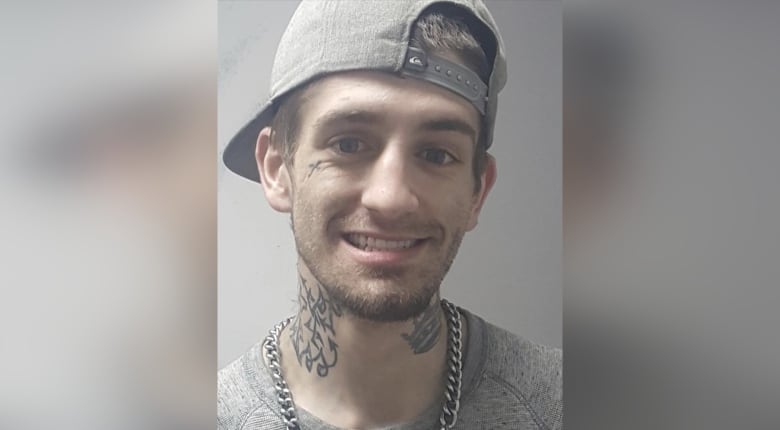
"I thought I did right by him by taking him to the hospital. He was savable "
Adams complained to the New Brunswick College of Physicians and Surgeons about the doctor who handled her son's lastvisit to the emergency room.
More than a year after his death, "I still have no answers, no accountability."
CBC News asked the college for the status of the complaint but was told that for privacy reasons, "the College is unable to confirm or provide details on any specific complaint cases."
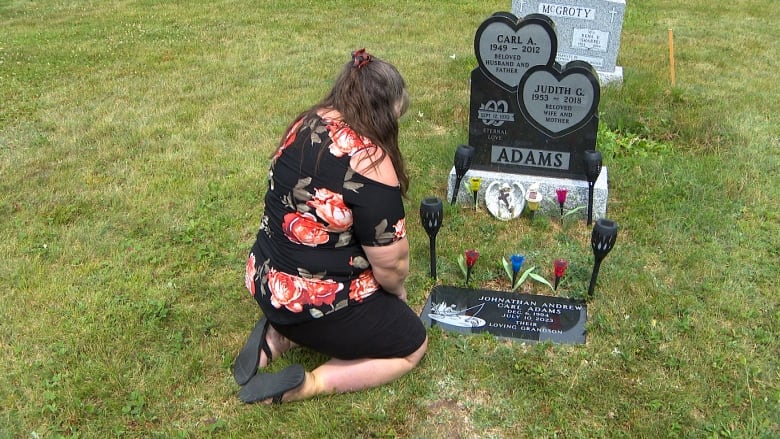
The day CBCreceived that emailed statement, Adams said she finally got a response from the college, sayingher complaint was "inadvertently overlooked." The collegepromised to respond by Sept. 16.
Adams hopes her son's death was not in vain.
"I'd like to see change, accountability that one child reaches out for help, that they get heard so another mother don't have to bury their child."
No 'hard and fast rules' for admission
Dr. Mark Sinyor, an associate professor at the University of Toronto and staff psychiatrist at Sunnybrook Health Sciences Centre, said it's rare for people to walk away from emergency rooms and follow through on their plans for suicide.
"The overwhelming majority of people who think about suicide never die by suicide," he said. "The overwhelming majority of people who show up to the emergency department in a suicidal crisis never die by suicide.
"All interventions, including emergency departments, can be improved, but I actually think that we have good emergency departments here in Canada."
Sinyor said there are no "hard and fast rules" about when to admit someone for psychiatric care. If someone is having an acute crisis, they can be admitted for emergency intervention.
But once this acute crisis has passed, there's often a lot of work to be done to help the person recover.

And in all cases, the ultimate goal is to help the person return to normal life within the community.
What would "really move the needle," he said, is a national suicide prevention strategy something that began in May when the federal government announced the National Suicide Prevention Action Plan.
21 recommendations in 2022
For Chase, the experience is all the more frustrating because she remembers the promises made in the wake of Lexi Daken'sdeath.
Withinweeks,Dorothy Shephard, the health minister at the time, said the system was broken. Announcing 21 recommendations, she vowed to fix it.
The Health Department, which now has Bruce Fitch as minister, was asked for an update onthose recommendations.
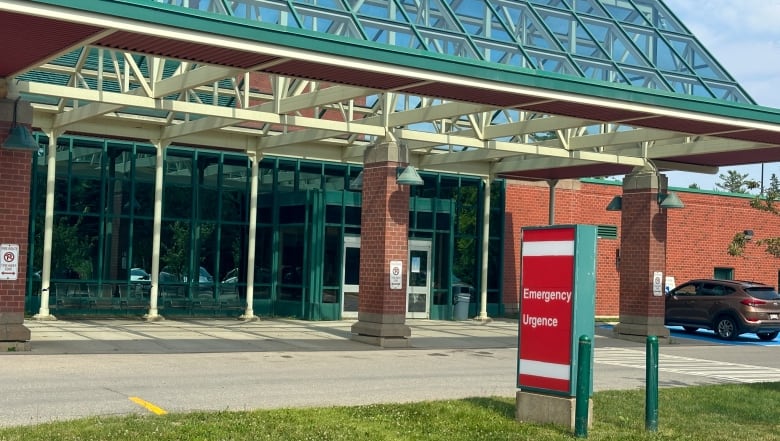
In an emailed statement earlier this summer,spokesperson Katelin Dean said the budget for addiction and mental health services has increased and totals $200 million. In the past two years, an additional $17.5 million has gone into expanding "mental health crisis care response services."
Although she didn't provide an update for each recommendation, Dean outlined a number of things underway manydesigned to keep people from having to go to the ER including a helpline.
Since the line launched in July last year,more than 25,300 calls have been received and more than 7,400 referrals made to government or community services.
Dean saidabout 99 per cent of thosecalls were cases that didn't end up inemergency departments.
She also said most of the in-hospital improvements have been made by the regional health authorities.
Horizon was asked for an interview to discuss those improvements, but aspokesperson provided a statement instead from psychiatrist Sanjay Siddhartha, chief of staff at the Miramichi Regional Hospital.

"Clinical protocols are in place to ensure patients are able to receive the care they need, when they need it," Siddhartha said.
Horizon has mental health teams of "highly skilled, compassionate clinicians" in each regional hospital emergency department.
"While no two situations are exactly alike, next steps can in some cases include admission to an inpatient psychiatric unit, or safe referral to programs and services which can better meet the patient's needs and provide appropriate treatment."
Siddartha also said an on-call psychiatrist is available around the clock to consult with staff or speak with the patient if necessary.Patients and members of the ER mental health team determine if consultation with a psychiatrist is "appropriate."
'Luck of the draw'
While Chase said her experience with ER mental health care left her in a worse frame of mind than when she went in, she doesn't want to dissuade anyone from going there to ask for help.
"I believe that, unfortunately, it is the luck of the draw. Some may have good experiences and many will not it is inconsistent across the board, it seems."
People need to know there are "risks associated with going to the ER for a mental health crisis," she said.
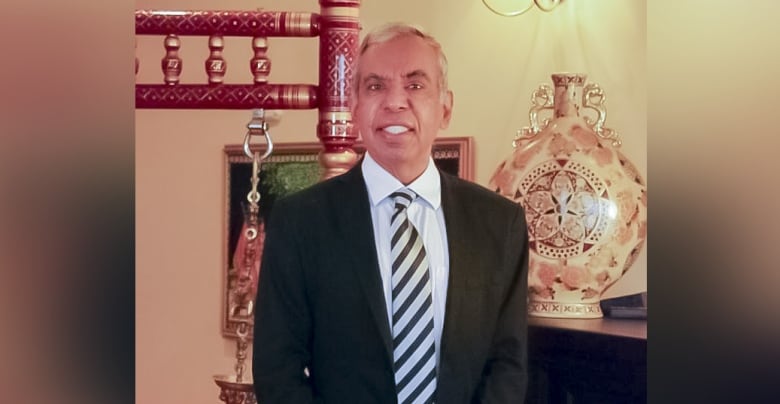
"People have a right to know that the system is broken."
Her advice to others is to take someone with them if they go to the ER someone "who can advocate for them in the scenario that I was in, with no means left to fight for myself."
If you or someone you know is in immediate danger, call 911.
Help is available 24/7. Here are some resources:
-
9-8-8: Suicide Crisis Helpline: Call or text 9-8-8. Support is available 24/7.
-
Kids Help Phone: 1-800-668-6868 or text CONNECT to 686868
-
Hope for Wellness Helpline for Indigenous peoples: 1-855-242-3310
-
Trans Lifeline: 1-877-330-6366














_(720p).jpg)


 OFFICIAL HD MUSIC VIDEO.jpg)
.jpg)



























































































